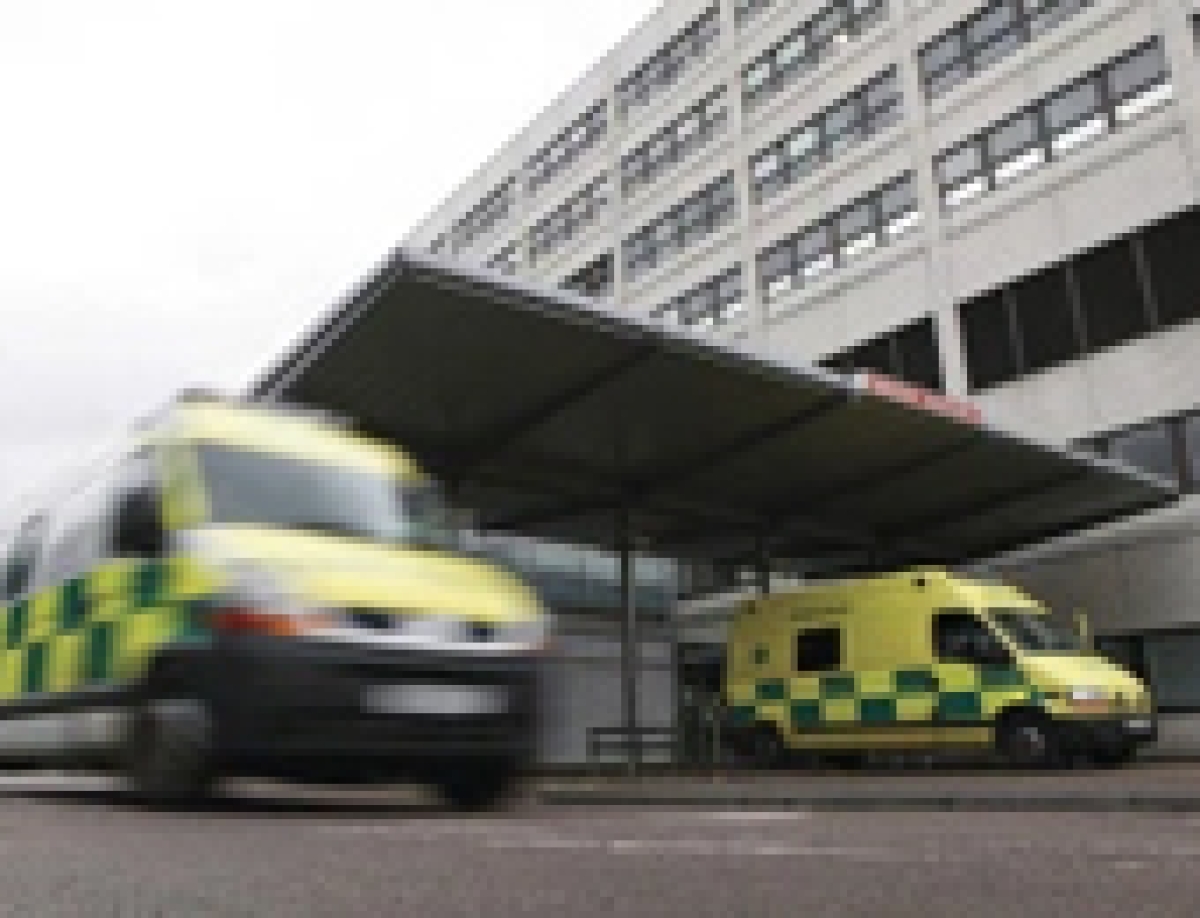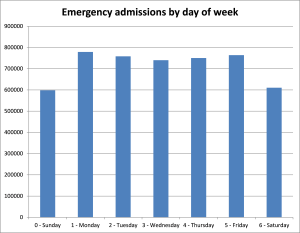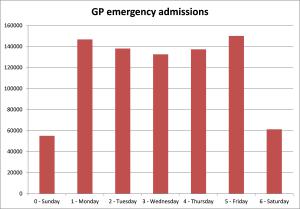
Our researchers spend time looking for trends in healthcare data that may help us get a better understanding of how the NHS operates throughout the week. This in turn can be used to manage activity so services are provided in a more consistent way. In a 2012 report we found there was significantly lower activity at the weekend when looking at emergency patients; elective patients; maternity and births; procedures and diagnostics. The following year National Medical Director Sir Bruce Keogh set out a plan to drive seven day services across the NHS starting with urgent care services and supporting diagnostics.
Our latest analysis has found total emergency admissions are 20 per cent lower at the weekend than they are during the week (see chart 1 below). We also found significant variation in the source of admission throughout the week with admissions from GPs 59 per cent lower at the weekend (see chart 2 below).
Additionally, we found that this fall occurred even in the most urgent cases (e.g. heart attacks and strokes). In the year to July 2014, 3,000 fewer patients with these urgent conditions were admitted at weekends than would be expected – an average of 60 fewer patients every weekend.
There could be a number of factors at play here. Heart attack and stroke can be triggered by stress and there is a clear link to lack of sleep. During the working week the probability of a heart attack is higher than the weekend (Monday and Friday are peaks for heart attack). A recent study in the United States by the American College of Cardiology showed the same drop off in weekend heart attacks and interestingly pointed to Monday being the day that most heart attacks occur. More striking this was significantly higher on the first Monday after the clocks go forward (less sleep combined with stress of the new working work).
Our analysis of publicly available hospital data did not establish why there was a decrease in admissions from GPs at the weekend. It could be that weekend out-of-hours GPs have a significantly higher referral threshold. However, it is as likely that there are fewer GP appointments (both out-of-hours and extended hours) over the weekend meaning that the total number of patients to admit from is lower to start with at the weekend. To find out whether this is the case we would need to look at GP and OOH attendance data to know for sure, but unfortunately this isn’t readily available.
The issue of emergency admissions to hospital is complex, but hopefully this analysis will provoke hospitals and healthcare commissioners to ask questions about the way that patients with urgent care needs are admitted from primary care.
Our analysis contains HES data which is re-used with the permission of The Health & Social Care Information Centre. All rights reserved.


Our researchers spend time looking for trends in healthcare data that may help us get a better understanding of how the NHS operates throughout the week. This in turn can be used to manage activity so services are provided in a more consistent way.
 Our researchers spend time looking for trends in healthcare data that may help us get a better understanding of how the NHS operates throughout the week. This in turn can be used to manage activity so services are provided in a more consistent way. In a 2012 report we found there was significantly lower activity at the weekend when looking at emergency patients; elective patients; maternity and births; procedures and diagnostics. The following year National Medical Director Sir Bruce Keogh set out a plan to drive seven day services across the NHS starting with urgent care services and supporting diagnostics.
Our researchers spend time looking for trends in healthcare data that may help us get a better understanding of how the NHS operates throughout the week. This in turn can be used to manage activity so services are provided in a more consistent way. In a 2012 report we found there was significantly lower activity at the weekend when looking at emergency patients; elective patients; maternity and births; procedures and diagnostics. The following year National Medical Director Sir Bruce Keogh set out a plan to drive seven day services across the NHS starting with urgent care services and supporting diagnostics.
